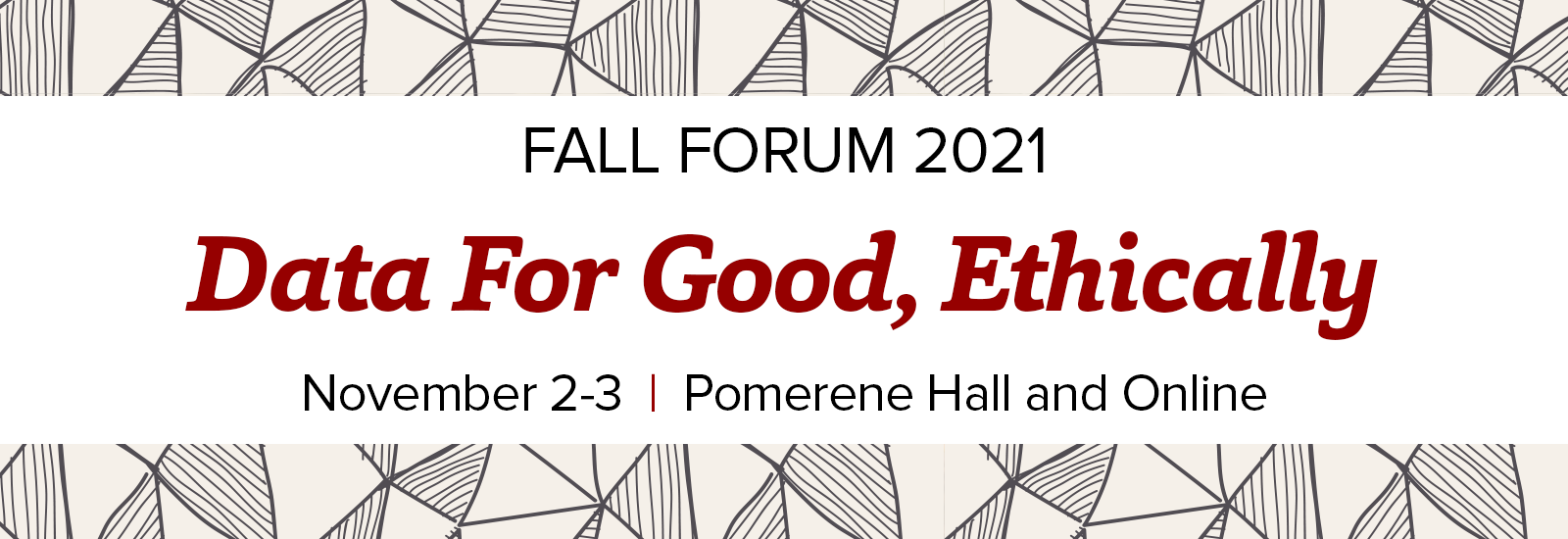Thank you to the contributors to the 2021 TDAI Fall Forum, including attendees, featured speakers and panelists, poster presenters, partners, and the planning committee members who put it all together.
Tuesday, Nov. 2
301 Pomerene Hall
9 a.m. - 5 p.m.
Poster Session Open House
Congratulations to our awardees!
See a list of all of the posters
Organizing Committee: Leanne Barry, Shaoying Ma, Selena Wang
320 Pomerene Hall
9-9:15am
Opening and Welcome
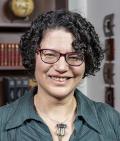
Tanya Berger-Wolf, PhD
TDAI Director; Professor, Computer Science and Engineering; Evolution, Ecology, and Organismal Biology; and Electrical and Computer Engineering
9:15-10:30 a.m.
Keynote
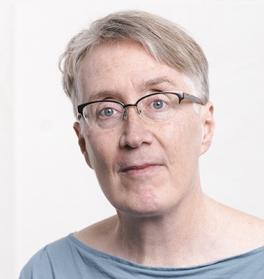
Prof. Joanna J. Bryson, PhD, Professor of Ethics and Technology, Hertie School of Governance, Berlin
About the speaker: Prof. Joanna Bryson is a transdisciplinary researcher and expert on intelligence, its nature and its consequences. Her studies on the structure and dynamics of human- and animal-like intelligence range from systems engineering of artificial intelligence through autonomy, cognition, robot ethics and human cooperation, on to technology policy. With degrees in social and computer sciences from Chicago, Edinburgh and MIT, her scientific research appears in venues from Reddit to Science, and her policy voice is heard in the UN, EU, CoE, OSCE and OECD.
Dr. Bryson advises governments, corporations, and other agencies globally, particularly on AI policy, and is presently Professor of Ethics and Technology at Hertie School of Governance, Berlin, where she cofounded the Centre for Digital Governance. Since June 2020 she has served as one of nine German-nominated experts on the Global Partnership for AI, where she co-chairs the AI Governance committee. Her present research focuses are the impacts of technology on human societies, and improving models of governance for AI and digital technology.
10:45-11:45 a.m.
Session 1: Responsible Data Science
Panel Discussion
About the session: The organizing committee wishes to host the panel to discuss contemporary thinking, constraints/limitations, realities and strategies as they relate to misinformation and disinformation. We are particularly interested in discussing these topics as they relate to the tools and applications of data science/analytics, algorithms, computer science and platforms such as social media, etc. The committee’s guiding thinking included the questions “What can be done,” “What ought to be done,” “When, if ever, do you intervene” and “What is moral/ethical to be done.”
Panelists:
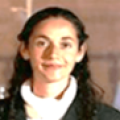
Michal Lavi, PhD | 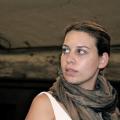
Ayse Deniz Lokmanoglu, PhD |
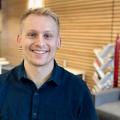
Sam Malloy | 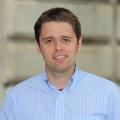
Thomas Wood, PhD |
Organizing Committee: Syedah Zahra Atiq, Raef Bassily, Audra Hanners, Margie Kelley, Abhishek Gupta, Bryan Weaver
11:45 a.m. - 1:15 p.m.
Lunch and Poster Judging
1:15-1:45 p.m.
WELCOME TO THE FALL FORUM
A welcome message from the Enterprise for Research, Innovation and Knowledge (ERIK)
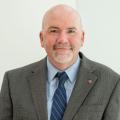
Peter Mohler, PhD
Interim Vice President of Research
Office of Research
1:45-2:45 p.m.
Session 2: AI and Healthcare
How AI and predictive models can be actionable in a clinical setting
Speakers:

Jeff Caterino, MD | 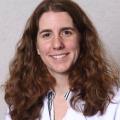
Courtney Hebert, MD |

Lang Li, PhD | 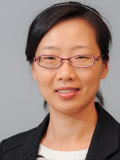
Xia Ning, PhD (TDAI Core Faculty) |
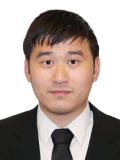
Ping Zhang, PhD (TDAI Core Faculty) |
Organizing Committee: Courtney Hebert, Lang Li, Xia Ning, Laura Pomeroy
3:00-4:00 p.m.
Session 3: Art and Data
Sci-Fi Prototyping and Critical Optimism

Sophia Brueckner
Associate Professor
Stamps School of Art & Design
University of Michigan
Organizing Committee: Kris Paulsen, Amy Youngs, Kelly Kivland
4-5 p.m.
Student Poster Awards and Networking Reception
Wednesday, Nov. 3
301 Pomerene Hall
9 a.m. - 2 p.m.
Poster Session Open House
320 Pomerene Hall
9-10 a.m.
Session #4: Smart Mobility
Panel Discussion Topic: Smart Mobility: Social and Environmental Sustainability
About the Session: The organizing committee wishes to host a panel to discuss the ways in which current developments in smart cities and shared, automated, and eventually autonomous mobility solutions promote social and environmental sustainability as well as the risks associated with these technologies. The committee’s guiding thinking includes questions such as:
- What developments do you foresee without policy adjustments?
- What can or should be changed from a policy perspective?
- What moral or ethical considerations should guide interventions?
Panelists:
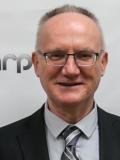
Chris Atkinson, PhD | 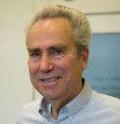
Fredrick P. Salvucci |
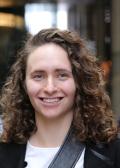
Shoshanna Saxe, PhD | 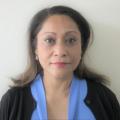
Vonu Thakuriah, PhD |
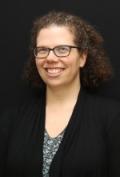
Kari Watkins, PhD |
Organizing Committee: Qadeer Ahmed, Andre Carrel (Panel Moderator), Harvey Miller, Rabi Mishalani
10:15 - 11:15 a.m.
Session #5: Environment and Sustainability
Panel Discussion
Panelists:

Deb Agarwal, PhD | 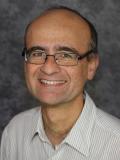
Bhavik Bakshi, PhD |

Bryan Mark, PhD | 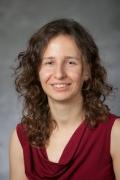
Daniela Miteva, PhD |
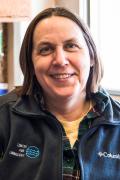
Emily Stanley, PhD |
Organizing Committee: Gil Bohrer, Jim Hood, Justine Missik, Kaiguang Zhao
11:30 a.m. - 12:30 p.m.
Session #6: Foundations of Artificial Intelligence and Machine Learning

David Banks, PhD
Professor of the Practice of Statistics, Duke University
Catastrophology: Forecasting Trends
About the talk: Demography and climate will have major social implications for the world. The problems are already here, but things will significantly worsen by 2050, which is within the lifetime of many in this audience. I shall review the detailed implications of the current trends, discuss mitigation strategies, and end gloomily.
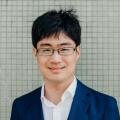
Tatsunori Hashimoto, PhD
Assistant Professor, Stanford University
On the theory of foundation models and their application to privacy-preserving NLP
About the talk: Large, pre-trained foundation models have transformed NLP with their impressive empirical performance. Despite the clear success of these models, their inductive biases and limits remain poorly understood. In this talk, we shed light on the origins of why masked language models recover linguistic structures such as syntax and demonstrate that these same models can break a 'curse of dimensionality' for differential privacy, leading to a simple and practical approach to privacy-preserving NLP.
Organizing Committee: Sebastian Kurtek, Subhadeep Paul, Yu Su

